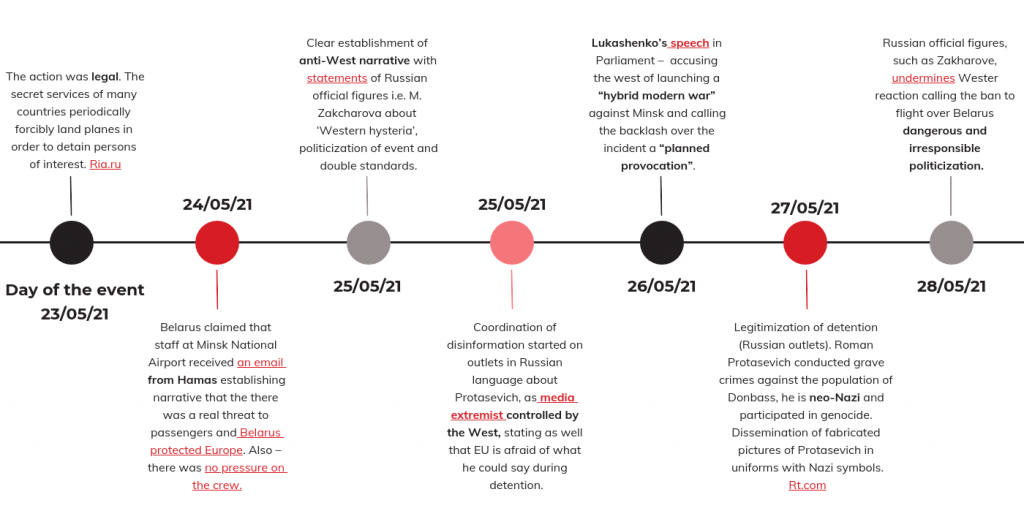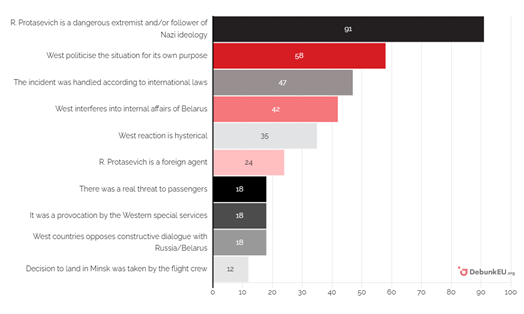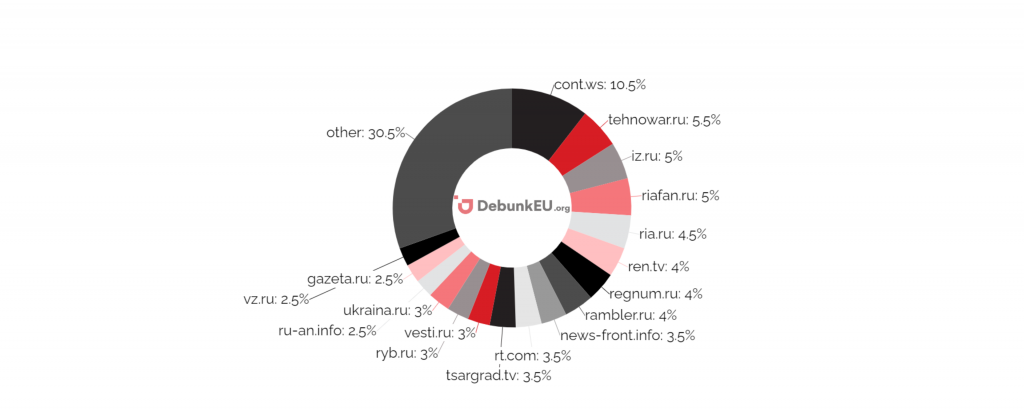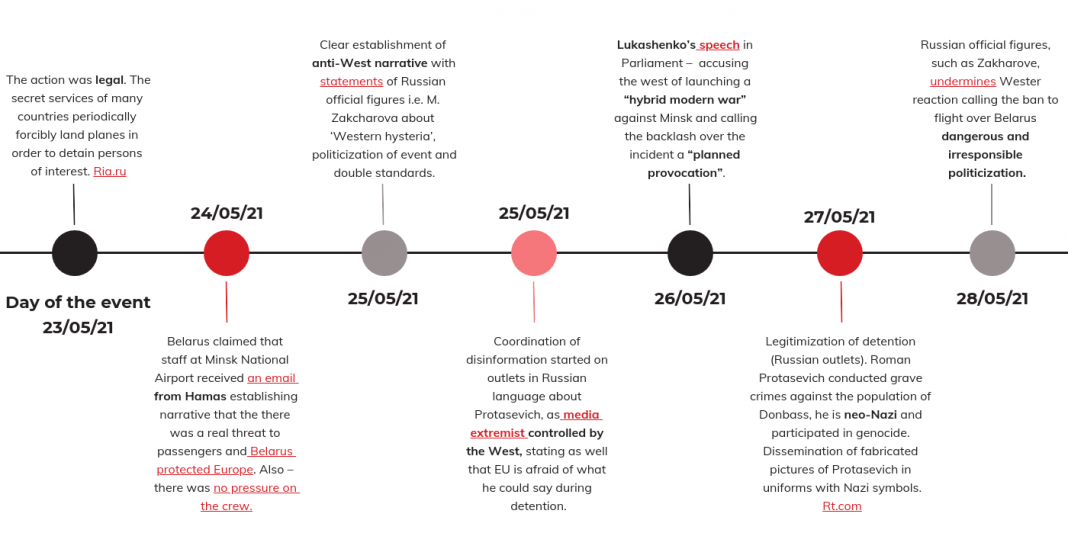By Debunkeu.org
On May 23, the Belarusian authorities forced the landing of a Ryanair passenger plane with a pro-democratic Belarusian opposition activist Roman Protasevich, using a military jet and a false bomb alarm. The forcible landing was intended to arrest the activist and his partner Sophia Sapiega. Both Belarusian and Russian authorities went to great lengths to spread disinformation about the event.
DebunkEU.org experts analyzed problematic information flow in a short period after the event May 23-30th. Analysts reviewed 300 selected articles on the issues and detected 219 articles (more than 73%), that were identified as disinformation.
Detected disinformation has potentially reached almost 155 million contacts. Numbers prove that topic was important for both audience and hostile media outlets.
Day after the event, pro-Kremlin media outlets copied false statements of Belarusian authorities stating that the forced plane landing was conducted accordingly to international laws. However, after the harsh reaction of the West, this narrative was muted and was not used that often.
Despite the short delay of pro-Kremlin media reaction on this event, Russian state-funded media sources aligned their stories on the situation with Belarus undemocratic regime and stance and strived to develop a story hand in hand with the portrayal of the story in Belarus disinformation outlets.

Through the whole week 23-30 of May, the major message which was spread across the misleading outlets attacked representative of pro-democratic opposition Mr Protasievich, claiming that he is a terrorist, dangerous extremist, or follower of Nazi ideology. The common use of this narrative aimed to justify the operation.

Western criticism provoked establishment of new narratives against EU countries and US. Some of them were connected to Mr Protasievich stating that he worked for foreign intelligence form countries like Poland or Lithuania and was planning to conduct coup in Belarus. In such narratives West countries were portrayed as interfering in Belarus internal affairs. Other messages undermined the effort of West to transparently cover the story. The articles accused Western countries in politicising the situation as well as reacting hysterically.

The analysis showed a great diversification of Russian language media sources spreading disinformation on this topic. Such trend suggests that it was important for Kremlin media to maintain extensive coverage of the topic in various channels in order to not only Belarusian version of event but also to ground it in wider audience.
To present disinformation on the issue technique of association were used very often. Disinformation within the association technique predominantly was complemented and reinforced with the statements of Russia’s officials and other statesmen. It suggests that Russia’s officials are active participators of spreading disinformation and they legitimize disinformation messages.
By Debunkeu.org
DebunkEU.org analysts use multiple tools to deliver reports:
- DebunkEU.org analysis platform
- CrowdTangle – Facebook tool that tracks interactions on public content from Facebook pages and groups, verified profiles, Instagram.
- Truly Media – collaboration platform developed to support primarily journalists in the verification of digital content.
- TruthNest – Twitter data analysis platform.
DebunkEU.org, VsI, is an independent technology think tank and non-governmental organization that researches disinformation and runs educational media literacy campaigns. Debunk EU provides disinformation analyses in Baltic countries and Poland, as well as in the United States and North Macedonia together with our partners.
Our team publishes 100+ disinformation reports per year focusing on the general trends in the Baltics and Poland, also false and misleading coverage regarding COVID-19, NATO,the situation in Belarus, and monitoring elections in Lithuania.
More information: Viktoras Dauksas, Head of Debunk EU, +370 615 57007, viktoras@debunkeu.org





